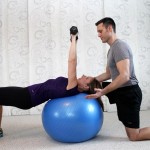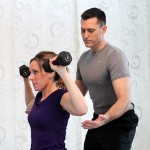The end of summer is soon to be here and school has started up again. My oldest is 8 and going to a new school this year. My youngest is 4 and is also attending a new school. Max, my oldest, is in 3rd grade now. His little brother, Will, is going to school 5 days a week for full days plus after care hours. My wife works full-time and I own my own business. All this adds up to STRESS (some good and some bad)!
The beginning of the school year always stresses me out. I try not to let it get to me, but sometimes the stress can get the best of me and just wear me down. I’m sure many of you have the same issues going on right now, and many of you probably have more stress than I have. I have learned over the years some different ways of coping with stress that have helped me to be a little more relaxed and ready to deal with life’s ever changing moments. Now remember, I’m just a personal trainer with a college education. I have never claimed to be a doctor nor will I ever. The following recommendations are techniques that work for me and just might work for you.
Take care of yourself. Your body will not function properly without proper nurishment, the right amount of sleep, and taking time to relax. Make sure you are eating healthy foods, getting 8 hours of sleep, and finding small moments in the day to reflect on good times in your life.
Boost your energy levels with daily exercise. Aerobic exercise and strength training are excellent ways to increase your energy levels and reduce stress in your life. Scientific studies have shown this to be true. Be sure to vary your exercise modes from day to day. This will help to keep you from being bored and will be sure to help you relax and have good nights sleep.
Sleep is most important in reducing stress. Studies have shown that getting 7 to 8 hours of good sleep is essential to decreasing the harmful effects of stress. You’ll find yourself more energetic and willing to take on new challenges.
Resolve anxious moments. When under stressful events, take the time to use relaxation techniques. Try to use imagery, deep breathing, postive thinking, or just simply walking for a few minutes.
Stess can be extremely harmful to our bodies and minds. I hope these four techniques can help to reduce some of the stress in your life. They work for me, especially the exercise and healthy eating. If you do feel your stress levels are high and these techniques do not work for you, please contact your doctor and get professional help.






